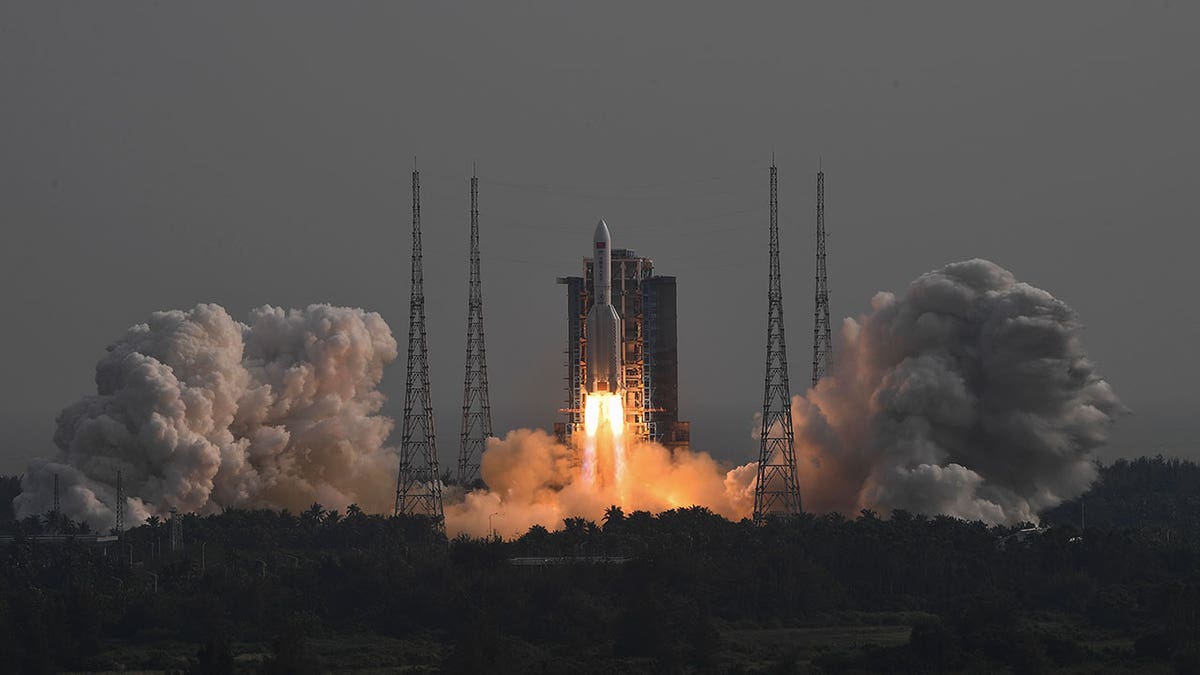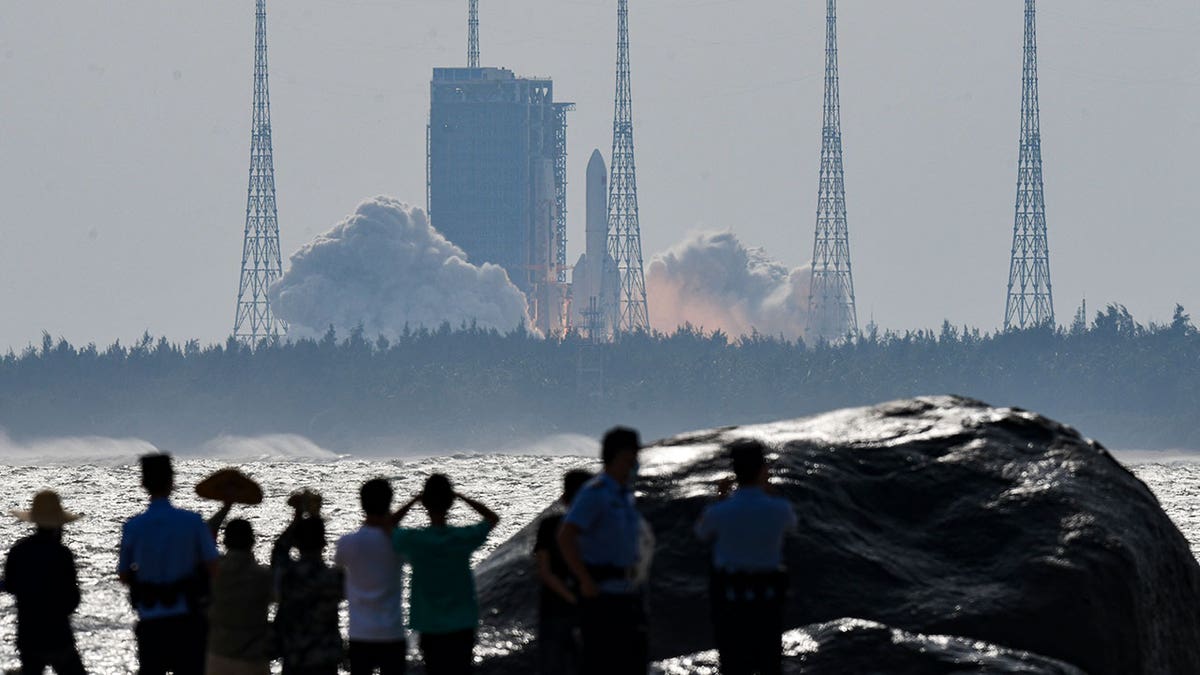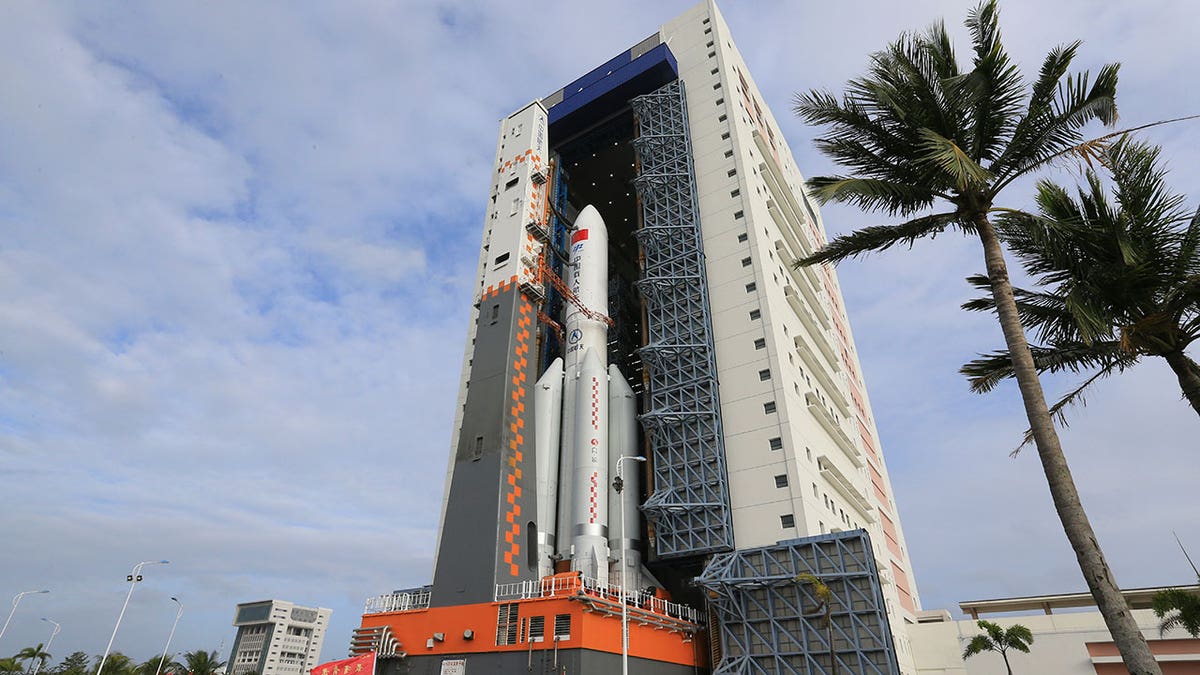US Space Command Chief: 'China is clearly our pacing challenge'
Speaking at the Aspen Security Forum Gen. John Raymond the head of US Space Command discussed the main issues in space, and said there was a need for a rules based order and described the present situation as being being like the 'wild, wild west.'
China launched its third and final module Monday in its effort to complete its permanent space station as competition with the United States continues to intensify.
Mengtian was launched into space from Wenchang Satellite Launch Center in Hainan. It is the second laboratory module for the station, along with Wentian.
Onlookers donned Chinese flags as well as T-shirts with the characters for China, while photographers also crowded in to document the event.
Mengtian was launched aboard a Long March-5B Y4 carrier rocket and was expected to spend 13 hours in flight before reaching the station, known as Tiangong, or "Celestial Palace." Crew members will be able to conduct experiments in a zero-gravity atmosphere on Mengtian while also having access to an airlock and a small robotic arm to aid in extravehicular payloads.
WEBB SPACE TELESCOPE SNAPS SPOOKY IMAGE OF PILLARS OF CREATION
Tiangong is currently housing three crew members — two male and one female astronauts — according to the China Manned Space Agency. The crew members arrived at the station in June for a six-month-long venture in which they will complete the station's assembly, engage in spacewalks and conduct other experiments.

In this photo released by Xinhua News Agency, the Long March-5B Y4 carrier rocket carrying the space lab module Mengtian, blasts off from the Wenchang Satellite Launch Center in south China's Hainan Province, Monday, Oct. 31, 2022. (Hu Zhixuan/Xinhua via AP)
Following Mengtian's arrival, an uncrewed Tianzhou cargo craft is expected to dock with the station next month, with a crewed mission scheduled shortly after in December. Crews may overlap as a result of the scheduled launches.
INTERNATIONAL SPACE STATION MOVES TO AVOID ORBITAL DEBRIS
Mengtian and Wentian collectively make up Tiangong. They are both connected to the Tianhe core module where the crew currently lives and works.

In this photo released by Xinhua News Agency, people watch the Long March-5B Y4 carrier rocket carrying the space lab module Mengtian, blasts off from the Wenchang Satellite Launch Center in south China's Hainan Province, Monday, Oct. 31, 2022. (Yang Guanyu/Xinhua via AP)
Wentian is the heaviest single-module spacecraft currently in space, weighing in at 23 tons. China plans to launch the Xuntian space telescope next year, which will orbit in sequence with Tiangong and dock occasionally for maintenance.

In this photo released by Xinhua News Agency, China's space station lab module Mengtian and the rocket Long March-5B Y4 is transported to the launch area at the Wenchang Satellite Launch Center in south China's Hainan Province on Oct. 25, 2022. (Tu Haichao/Xinhua via AP)
China's increasing space capabilities have become a hot-button topic as competition with the U.S. continues to gain momentum.
China’s crewed space program is officially three decades old this year. But it truly got underway in 2003, when China became only the third country after the U.S. and Russia to put a human into space using its own resources.
SPACE ARMAGEDDON: WHY THE PENTAGON FEARS RUSSIA AND CHINA’S STAR WARS WEAPONRY
The U.S. excluded China from the International Space Station because of its program's military ties.
CLICK HERE TO GET THE FOX NEWS APP
The Associated Press contributed to this report.










































